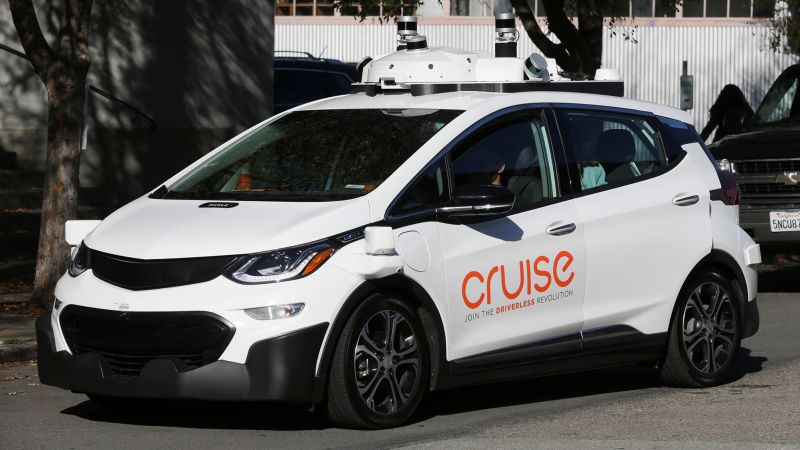Cruise, General Motors’ self-driving vehicle subsidiary, has recalled all 950 of its autonomous vehicles for a software update. Late last month, Cruise paused all its public testing operations while it investigated the incident that led to the recall.
GM had announced Monday that it was pausing production test versions of the Cruise Origin, a self driving vehicle GM and Cruise designed jointly with Honda. The Origin has no steering wheel or pedals and is not currently operated on public roads. GM characterized the production stop as reaching the end of a planned limited production run of test vehicles. GM remains committed to autonomous vehicle technology, spokesperson Aimee Ridella said in an emailed statement.
The company had been under scrutiny following an incident in early October when one of its cars struck a pedestrian that had just been hit by another. The first car threw the pedestrian into path of the Cruise autonomous vehicle. After striking the pedestrian, the Cruise AV attempted to pull off to side of the road to avoid causing an obstruction.
The vehicle evidently did not detect that the injured pedestrian was trapped underneath the vehicle. The person, who has not been identified, was critically injured after being dragged slowly across the asphalt for about 20 feet, according to documents related to the incident. The person was said to have sustained
A few weeks later, the California Department of Motor Vehicles suspended Cruise’s permits to operate its vehicles in that state, citing a lack of cooperation in the investigation of the crash. Cruise claimed that it had promptly reported the incident, as required by regulations, and had cooperated fully with investigations by the state DMV and by the National Highway Traffic Safety Administration,
About two days later, Cruise announced it was halting all operations nationwide while it investigated the incident what happened and the company’s own response to it.
The update will alter the way the car responds after an impact is detected. In this case, the vehicle had incorrectly determined that it was struck on the side rather than hitting something in the front, according to a report Cruise filed with NHTSA. The report did not detail exactly what the software update changes, only that it “remedies the issue described in this notice.”
The cars can be returned to service once the updates are completed, Cruise said in its report to NHTSA.
Cruise doesn’t sell its self-driving vehicles so all the cars are owned by either Cruise or GM, which produces the heavily modified Chevrolet Bolt electric vehicles. The company will perform the software updates itself.
Read the full article here




